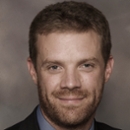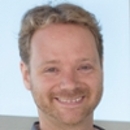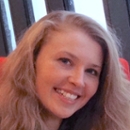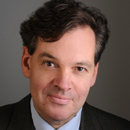Careers in mathematics and statistics

What can I do with a degree in mathematics and statistics?
Mathematicians and statisticians are always in demand. They find hidden relationships and patterns and develop the detailed predictive models useful in almost every industry. Our programs develop the logic, critical thinking, analysis, problem-solving and communication skills that are in needed in all fields.
A degree involving mathematics or statistics will prepare you for a career in areas such as health, finance, information technology, education, pharmaceuticals, government, insurance, and academia.
- Actuary
- Big data analyst
- Budget analyst
- Business metrics analyst
- Claims adjuster
- Control statistician
- Cryptographer
- Database administrator
- Economist
- Financial analyst
- Foreign exchange trader
- Insurance underwriter
- Logistics specialist
- Marketing consultant
- Operations research analyst
- Robotics analyst
- Stockbroker
- Systems operation analyst
- Technical mathematical modeller
Meet our alumni
Jeremy Bell - Actuary

Jeremy Bell - Partner, George & Bell Consulting
Degree: Mathematics, B.Sc. (2000)
I earned a BSc in Honours Mathematics from UVic in 2000. I focused on pure math, the types of courses where there are few, if any, obvious applications other than further math. To me, pure math is closer to art than science.
Through my math studies at UVic, I developed a number of skills that serve me well today. Two particular attributes are: I speak and write with purpose and brevity; as is the case with a well-constructed math proof. I am skeptical of an assertion until I can prove it; in math, an unproven assertion has no value.
Today, I am an actuary. I advise companies, unions and governments on financial issues for pension and benefit plans. I am very satisfied in my career, in large part because it constantly changes and it matters to many Canadians. While math forms the basis for my work, I am primarily a communicator. I would highly recommend taking math in university. I enjoyed learning math; I have a very interesting career thanks to math; and I continue to succeed in my career because of the skills that I developed through my mathematical training.
Peter Bell - Proprietary Trader
Peter Bell - Partner, Charles Bridgeford Investment Management
Degree: Financial Mathematics and Economics, B.Sc. (2009)
Subsequent Education: Applied Mathematics, University of British Columbia, M.Sc. (2011)
Taking an M.Sc. in Mathematics was a challenge, but it has helped me wedge open many doors. People seem to be impressed by a math degree. When I was doing a Ph.D. in Economics it was great to have some sense for what models can do, what they can’t do, and the people who make them. The range of modelling techniques and problem solving skills I learned as a math student are important for what I do now. I would encourage most anyone to engage with the mathematics community and work to develop themselves by studying mathematics.
For me these days, math is like an old friend. I am glad to know it, even if we don’t get to spend as much time together as we used to. I hope we can find some time to reconnect again in the future.
Patrick Gill - Principal Research Scientist

Patrick Gill - Principal Research Scientist, Rambus Labs
UVic: (1997-1999)
Subsequent Education: Physics, Math, University of Toronto, BSc. (2001); Biophysics, University of Berkeley, Ph.D. (2007)
The math I learned at UVic has helped me in more ways than I imagined. I started at UVic in 1997 as an undergrad in Physics and Math, and at the time I might not have been sure why I was learning to perform trigonometric integrals, learn Fourier theory or solve partial differential equations (PDEs). The material was interesting enough in its own right, and I made sure I internalised the reasoning behind what I was learning so I could see how it related to some of my other interests. Near the end of undergrad I fell in love with the neuroscience, and my graduate school work at the University of California at Berkeley involved studying the way songbird brains can listen to birdsong particularly well. A solid grounding in calculus of several variables let me describe the space of all possible zebra finch songs in a biologically relevant way, and helped me show how bird brains can encode the whole of the song by firing spikes in response to just the surprising parts. Also, a thorough induction in Fourier theory allowed me to take to the task of analyzing birdsong in new ways, which was instrumental in my dissertation. After my Ph.D., I tried my hand at making new types of optics, including diffractive optics so small that they could be put into a brain without doing much damage. My training at UVic on how to compute numerical solutions to PDEs let me build the right kind of diffraction simulator to help produce what arguably was the world’s smallest camera during a postdoc at Cornell University. I now work on computational diffractive optics at Rambus, where my UVic-aquired knowledge of PDEs and calculus is of foundational importance in my work designing tiny diffractive light sensors. Reflecting back, it’s apparent that a thorough grounding in mathematics was instrumental in my success every step of the way, and I’d like to thank my UVic mathematics professors for the deep and practical mathematical grounding they imparted.
Katerina Gribbin - Research Assistant

Katerina Gribbin - Research Assistant, Central Bank of Canada
Degree: Financial Mathematics and Economics, BSc. (2016)
I completed my B. Sc. in Financial Mathematics and Economics in 2016. What I didn’t fully appreciate until after graduation is just what a unique and valuable program it is. It is a program that requires courses in a wide variety of disciplines, and provides not only a thorough grounding in theory, but also possesses a strong applied aspect that has proven to be invaluable at my current job.
During my final year at UVic, I was interviewed and hired as a research assistant by the Central Bank of Canada. I joined the International Department in the United States division immediately after graduation. My team monitors and forecasts the United States economy, with the ultimate goal of determining the implications for the Canadian economy.
I am currently conducting research using big data in order to try to determine what is responsible for the declining labour-force participation rate of prime-age workers in the US (essentially the fraction of the population who are between the ages of 25 and 54 and who are employed or actively seeking work divided by the total prime-age population). I plan to go on to pursue a PhD in economics.
One of the best aspects of the math program at UVic is that it is a small program, with lots of opportunities to get to know your professors and other students. My advice to incoming students is to realize that while it is an incredibly valuable and rewarding program, it is challenging at times, and not to let a bad grade derail your confidence.
Karl Kappler - Electromagnetic Geophysicist

Karl Kappler - Electromagentic Geophysicist, Ground Metrics
Degree: Mathematics and Physics, B.Sc. (2002)
Subsequent Education: Applied Geophysics, University of California at Berkeley, Ph.D. (2008)
After receiving a B.Sc. in Honours Math and Physics at UVic, I went on to obtain my Ph.D. in applied geophysics at the University of California at Berkeley. I was exposed to a highly cross disciplinary department including planetary scientists, astrobiologists, crytallographers, and field geologists. I observed that having taken many mathematics courses significantly affected applicants chance of acceptance in almost any physical science graduate program - there are very few graduate programs that will not gladly accept someone with a math minor.
In physical and engineering disciplines, people approach the problems from a very mathematical viewpoint and my math background allows me to communicate with professional colleagues from other disciplines. The abstract thinking skills, together with the appreciation of precise definitions produce clear communication. Mathematics provides a means to conceptualize problems and to delineate the experimental questions being asked. Conceptual methods in math courses contribute significantly to problem solving in computing sciences as well as in business and project management.
A very successful geophysicist once told me that if they could start their education over again, they would have first studied math, then physics, then geology.
Rena Klar - Biostatistician

Rena Klar - Biostatistician, Quintiles
Degrees: Mathematics and Statistics, B.Sc., (2008), Statistics, M.Sc., (2011)
I earned a B.Sc. in Mathematics and Statistics with Distinction before continuing on to earn my M.Sc. in Statistics at the University of Victoria. During my undergraduate degree, I was awarded two Natural Sciences and Engineering Research Council of Canada Undergraduate Student Research Awards (NSERC USRA) which gave me invaluable research and work experience. I continued on my endeavor of supplementing my classroom education during my Master’s degree by choosing to complete a thesis and co-operative education.
When I completed my Master’s degree, I chose to stay and teach at the University of Victoria for two semesters. It gave me a unique experience to learn the other side of the classroom. Although it was very beneficial, it wasn’t something I saw myself doing for the rest of my life. I found employment with PRA, a contract research organization (CRO) in Victoria, as a Clinical Programmer (CP). CROs are employed by pharmaceutical companies to support clinical trial research. As a CP, I provided statistical programming support and validated datasets, converting data to SDTM, ADAM or client specific structures. I also produced tables, figures and listings to support the tabulation and analysis of clinical trials. While I found programming enjoyable, I wanted a more statistical based job and thus started to work for Quintiles, the top CRO in the world, as a Biostatistician. As a Biostatistician, I develop analysis plans, table shells, programming and table specifications. I assist with protocol and case report form development, sample size calculation and write the statistical sections of integrated reports.
Many people often ask what can you do with a statistics degree and the possibilities are endless. I found a great career in pharmaceuticals which will never have a shortage of biostatistician positions. It is a unique and ever changing environment and makes a real difference in the lives and health of others.
Bruce Shepherd - Professor
 Bruce Shepherd - Professor, McGill University
Bruce Shepherd - Professor, McGill University
Degree: Computer Science and Mathematics, B.Sc. (1985)
Subsequent Education: Combinatorics & Optimization, University of Waterloo, MMath (1987) Ph.D. (1990)
After joining Bell Laboratories in 1997, Bruce Shepherd designed algorithms and produced software in areas such as optical network design, real-time network management, scheduling and Internet measurement.
He also maintained an interest in the fundamental theory behind these problems including his analysis of the world’s defacto interdomain routing protocol (border gateway protocol). He is a member of the department of mathematics and statistics at McGill University.
